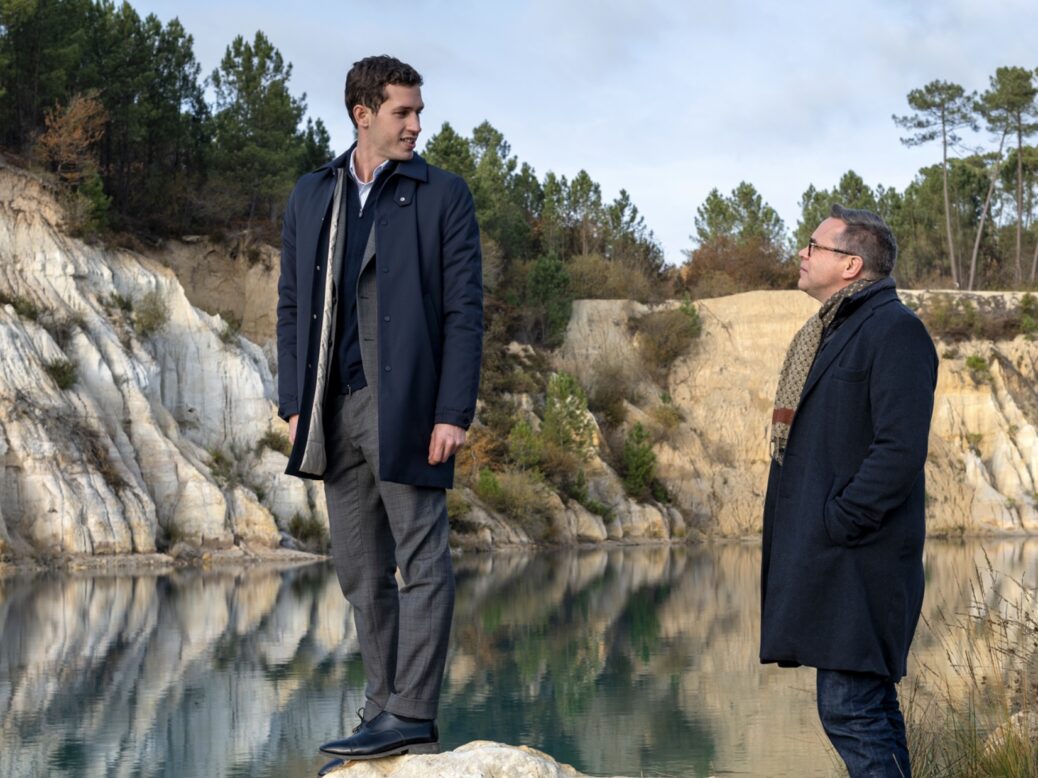
Philippe Besson’s 2017 autobiographical novel Arrête avec tes mensonges (“Stop With Your Lies”) sold more than 165,000 copies in France and was soon translated into 15 languages, most notably by the actor and translator Molly Ringwald as Lie With Me. The novel fitted easily into the genre of gay romance, and was invariably compared to the works of André Aciman, such as Call Me By Your Name. Besson’s story was even dubbed “the French Brokeback Mountain” by Elle magazine.
The author grew up in the small, dull town of Barbezieux-Saint-Hilaire in the Charente, around 28km south of Cognac. In his autobiographical novel Besson recalls the formative affair of his life, when he fell in love with another boy at his school called Thomas, when they were 17. It was a passionate relationship – which was never admitted to in public – but it ended abruptly and inexplicably as soon as school was over. The book, written in the first person as a memoir and dedicated to the memory of Thomas Andrieu (1966-2016), is as openly factual as anything by Karl Ove Knausgård. Yet it is also intricately structured, through three chapters set in 1984, 2007, and 2016.
When he is giving an interview in Bordeaux in 2007, the unnamed narrator spots a boy who looks astonishingly like his lost love of 23 years earlier. The boy, called Lucas, is indeed Thomas’s son and the narrator learns a little more about what has happened to the love of his life. Thomas married and became a farmer, mired in the countryside where he grew up. In 2016 Lucas travels to Paris to see the narrator again, bearing a letter of farewell that his father wrote to him in the summer of 1984, but did not send. This changes everything. Owing to a combination of shame about his sexuality and provincial entrapment, Thomas Andrieu lived a hidden, falsified life, but now the truth can be owned – both by his son and his lover of so long ago.
In the film adaptation of Lie With Me, the director and scriptwriter Olivier Peyon has made a brilliant recension of this complex narrative, having been given a free hand by Besson, who told him “the greatest betrayals make the best adaptations”.
The action takes place in one location over a weekend, counterpointed by extended flashbacks to the past. Stéphane Belcourt (Guillaume de Tonquédec), a gay writer who is celebrated for his love stories, travels back to his home town for the first time in 35 years. He is there to fulfil a tawdry commission to write a text and make a speech on behalf of an international cognac brand, “Baussony” (Château de Bagnolet, which is owned by the cognac brand Hennessy, is used as a setting).
[See also: A strategic analysis of Barbie]
Belcourt is a hunched, nervous figure, lumpy and bespectacled, and thickly wrapped in coats and scarves (in the novel, Besson touchingly says there are men who collapse around their thirties and he’s one of them). But what he remembers is the physical glory of his teenage love (Jérémy Gillet plays the young Stéphane, Julien De Saint Jean the young Thomas). And he finds it reincarnated in Thomas’s son Lucas, who happens to be an international executive for the cognac company (played by the lean, dark Victor Belmondo, who has something of the allure of his grandfather, the actor Jean-Paul Belmondo.)
The novel is introspective and analytical, but Peyon has dramatised it dashingly. Lucas is initially deceitful to Stéphane about how much he knows about him and his father, and how deeply he has read his work. Yet their understanding of each other develops quickly. There is a tearfully moving public reconciliation of their private conflicts, when Stéphane turns his speech supposedly in tribute to the brandy (he doesn’t drink) into truthful testimony. “You always write to someone – you write to someone to make them present again,” he says.
Lie With Me, which is otherwise quite a conventional, small-scale French movie, is wildly romantic. Perhaps only a story that looks back over 40 years, before mobiles and the internet, a time when it was not so easy to come out (or even move far from home), let alone hook up speedily online, can plausibly make a first love so central, so much the determinant of a whole life. If so, thanks. It’s a truth that’s been deftly universalised here, late in the day. “I could have done with other loves perhaps. But there it is, either you love or you don’t,” wrote Samuel Beckett in First Love and Other Novellas. As Lana Del Rey warns, when you know you know.
“Lie With Me” is in cinemas from 18 August
[See also: Indiana Jones and the Dial of Destiny: a feeble last crack of the whip]
This article appears in the 16 Aug 2023 issue of the New Statesman, Russia’s War on the Future






